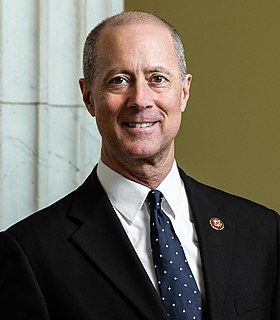A Quote by Jim Ryun
Yesterday I, along with a bipartisan Congressional Delegation of lawmakers, inspected the detention facilities at Guantanamo used to house individuals detained in the War on Terrorism.
Related Quotes
Long before, and fully independent of, anything Congress did, President Obama made clear that he was going to preserve the indefinite detention system at Guantanamo even once he closed the camp. President Obama fully embraced indefinite detention - the defining injustice of Guantanamo - as his own policy.
President Obama's decision not to go to Congress for help in establishing reasonable standards for the continued detention of Guantanamo detainees is a failure of leadership in the project of putting American law on a sound basis for a long-term confrontation with terrorism. It is bad for the country, for national security, and for civil liberties.
Let me say this: I believe closing Guantanamo is in our Nation's national security interest. Guantanamo is used not only by al-Qaida, but also by other nations, governments, and individuals - people good and bad - as a symbol of America's abuse of Muslims, and it is fanning the flames of anti-Americanism around the world.
The thing that is different I think from the years ago, when I was covering the shutdown at the Clinton White House. Then, it was a different political landscape. At that point, a third of House Republicans in the 1995 shutdown were in congressional districts that had been won by Bill Clinton. 7 percent of House Republicans are in congressional districts that were won by Barack Obama shows you how much more partisan the whole country is. A lot of the bridges that used to be used to reach a deal when you needed to reach a compromise have been blown up in the past years.
I think we need to understand what we mean when we talk about closure, we don't mean transfer or prosecute which is what many of the critics of Guantanamo would like to see happen. When the US government talks about closing Guantanamo, they talk about moving some set of detainees to some other place where they continue to be detained without charge.
From Iraq to Guantanamo Bay, international standards and the framework of international law are being given less when they should be given more importance. I am pleased that the courts in the United States are beginning to review what has happened to those detained in Guantanamo Bay. Similarly in Iraq we need to bring our strategies back within the framework of international norms and law.
Unfortunately, the United States and a few other governments have used the war on terrorism as a way of violating human rights. I am referring to the case of the Guantánamo Bay prisoners. This violation of the rights of prisoners has been so unbelievable that the United Nations has reminded the United States repeatedly that the treatment of prisoners should take place according to the preestablished conventions of the United Nations.




































